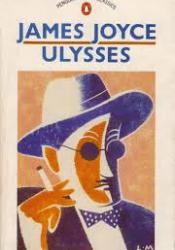James Joyce's Ulysses (1922)
James Joyce's Ulysses (1922), is an incredibly long and complex novel of the modernist time period. The novel is incredibly influenctial for its narrative style and voice. Joyce's writing follows the lives of three chracters who eventually find their paths crossing. Though the novel explores the events only of one day, it's detailed and incredibly chaotic writing style introduced a narrative style that is now refferred to as "stream of conciousness." This narrative style was a profound inspiration for writers like Virginia Woolf. Her writing in Mrs. Dalloway and Orlando demonstrates a stream of conciousness narrative that allows her novels to be read in a modernist context. The novel is also incredibly impactful for its many references to classical literature. Many of its pages include the characters of the novel to characters and plots in Homer's The Odyssey. Ulysses's subject matter is incredibly intense and grotesque and was banned for many years in the United States as a result. In recent years, it has become highly revered for its intricately detailed character developement, style expierimentation, and interwining of classical imagery.
Jr., Ben W. Heineman. “Rereading 'Ulysses' by James Joyce: The Best Novel Since 1900.” The Atlantic, Atlantic Media Company, 29 Nov. 2010, www.theatlantic.com/entertainment/archive/2010/11/rereading-ulysses-by-j....

